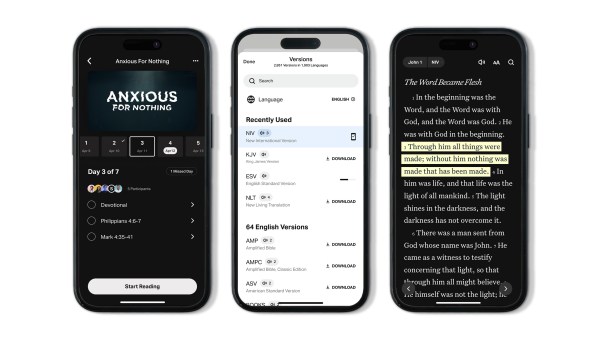Remember those open-exchange letters last fall between Muslim and Christian leaders? The first, “A Common Word Between Us and You,” was signed by 138 Muslim scholars and clerics and called for a new level of engagement between the two faith groups based on what they said was the “common ground” between Islam and Christianity: love of God and love of neighbor.
The response, “Loving God and Neighbor Together,” was penned by scholars at Yale Divinity School and heartily affirmed the need for deeper understanding between the two faiths (though that letter focused more on relational bridge-building and less on theology). Some 500 Christian leaders signed the document, including pastors Bill Hybels and Rick Warren, missions expert Jonathan J. Bonk, National Association of Evangelicals’ president Leith Anderson, theologian John Stott, and CT editor in chief David Neff. (The letter was also met with criticism from prominent evangelical leaders.)
Now the two letters seem to be bearing their intended fruit, as next week Yale will be hosting a three-day conference bringing together 150 Christian and Muslim leaders for workshops and panel discussions on global interfaith relations. The conference was planned by the drafters of “Common Word” and the Yale Center for Faith & Culture’s director Miroslav Volf, who will be teaching a Yale course on religion and globalization this fall with Tony Blair.
The conference is one in a series intended to promote relational ties and peacemaking initiatives. The other conferences will be held at Cambridge (October), the Vatican (November), Georgetown (March 2009), and the Royal Aal al-Bayt Institute in Jordan (October 2009).
Next week’s conference and those following it will likely inspire similar disagreements as did the original letters about whether Christianity and Islam share as much “common ground” as the first letter suggested, and what our faithful response should be to calls for interfaith understanding. (Evangelism? Separation? Peacemaking? All of these in different contexts?) Fortunately, the evangelicals attending – David Neff, Nigerian pastor Tokunboh Adeyemo, Robert Schuller, and Warren Larson, director of the Zwemer Center for Muslim Studies at Columbia International University, among others – have already been thinking biblically about the implications of the letters, and should be able to translate the conference’s outcomes to those of us eager to see its results.
See CT’s prior coverage of the letters:
Foreign Correspondence | by Jocelyn Green
Muslim and Christian leaders seek common ground in conciliatory letters.
Speaking Out: The Peacemaking Process | by J. Dudley Woodberry
A call to evangelicals to respond to a significant Muslim overture.
Wheaton College Administrators Remove Names from Christian-Muslim Statement | by Ted Olsen
‘My eagerness to support the statement’s strengths caused me to move too quickly,’ president Duane Litfin tells student newspaper.








